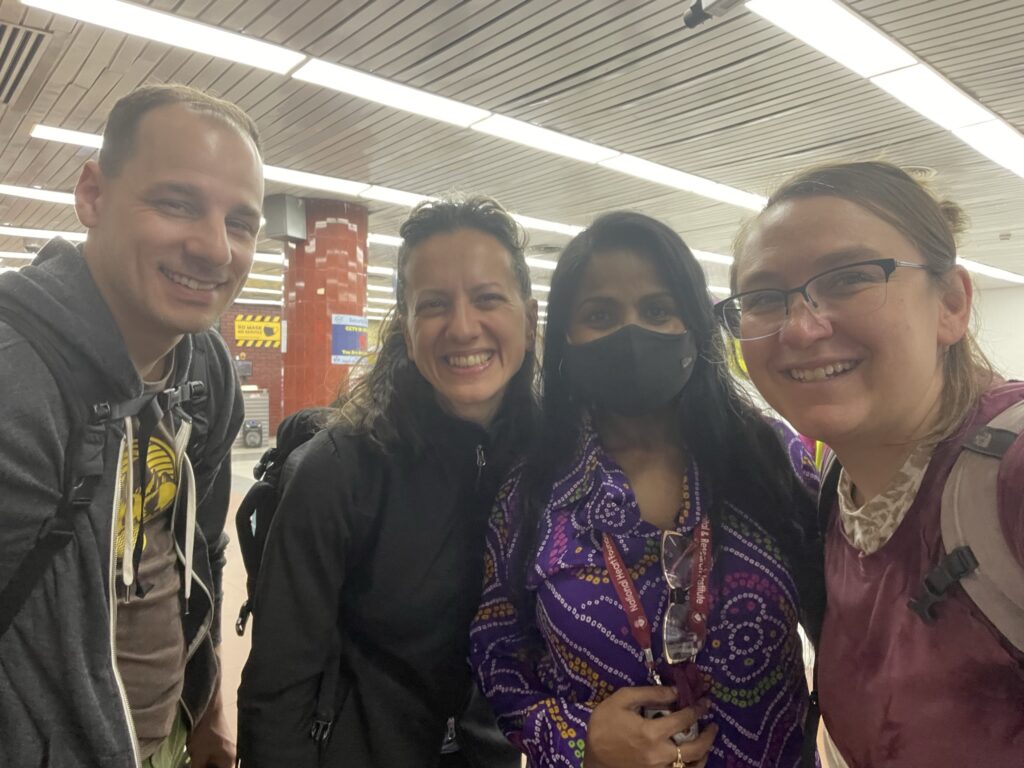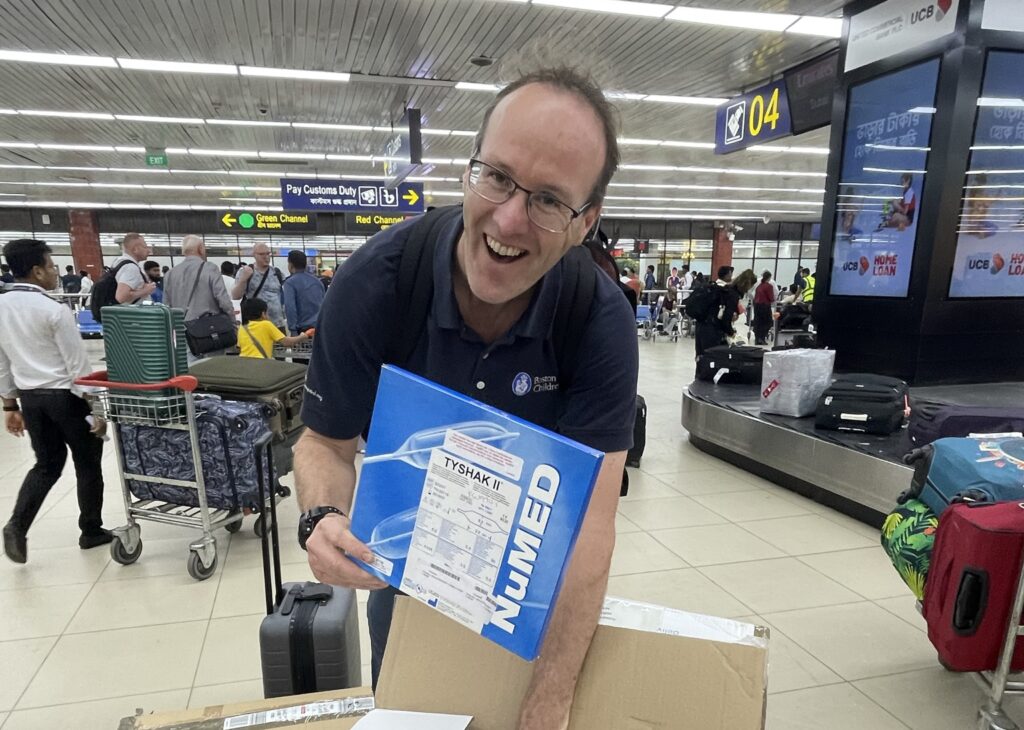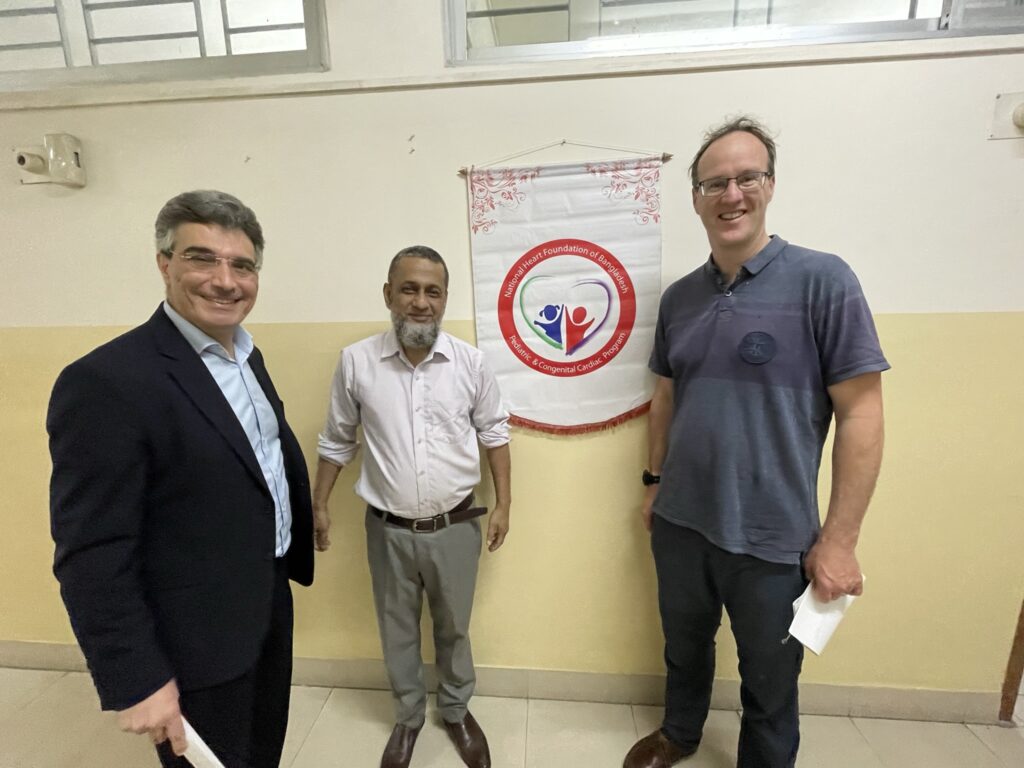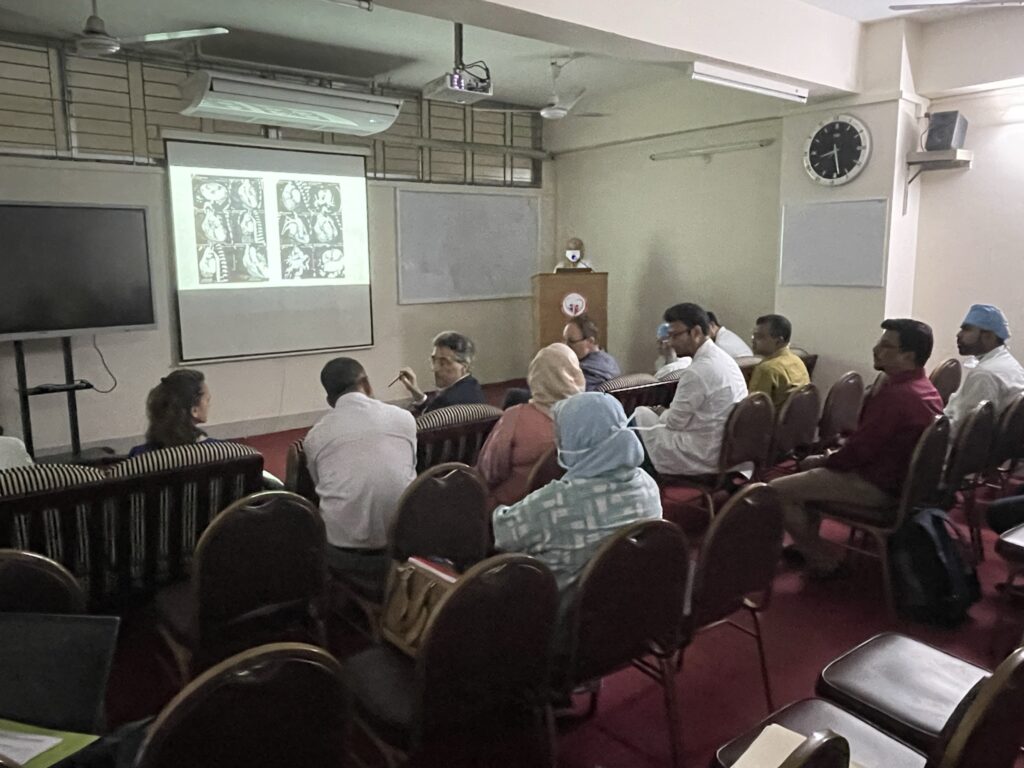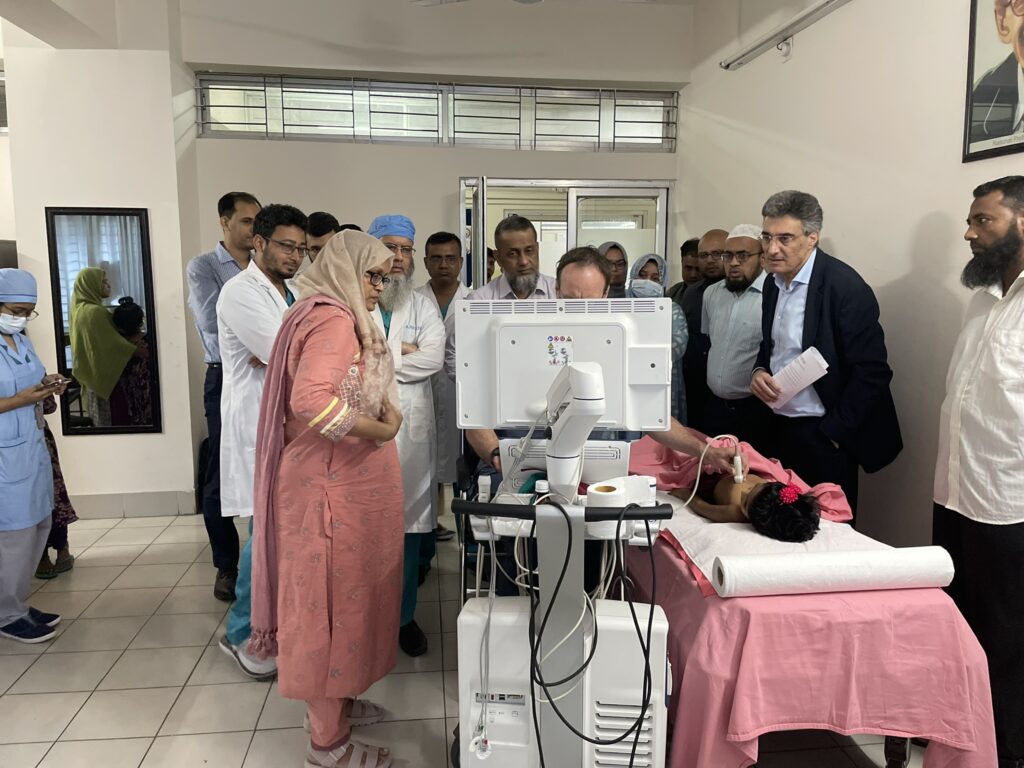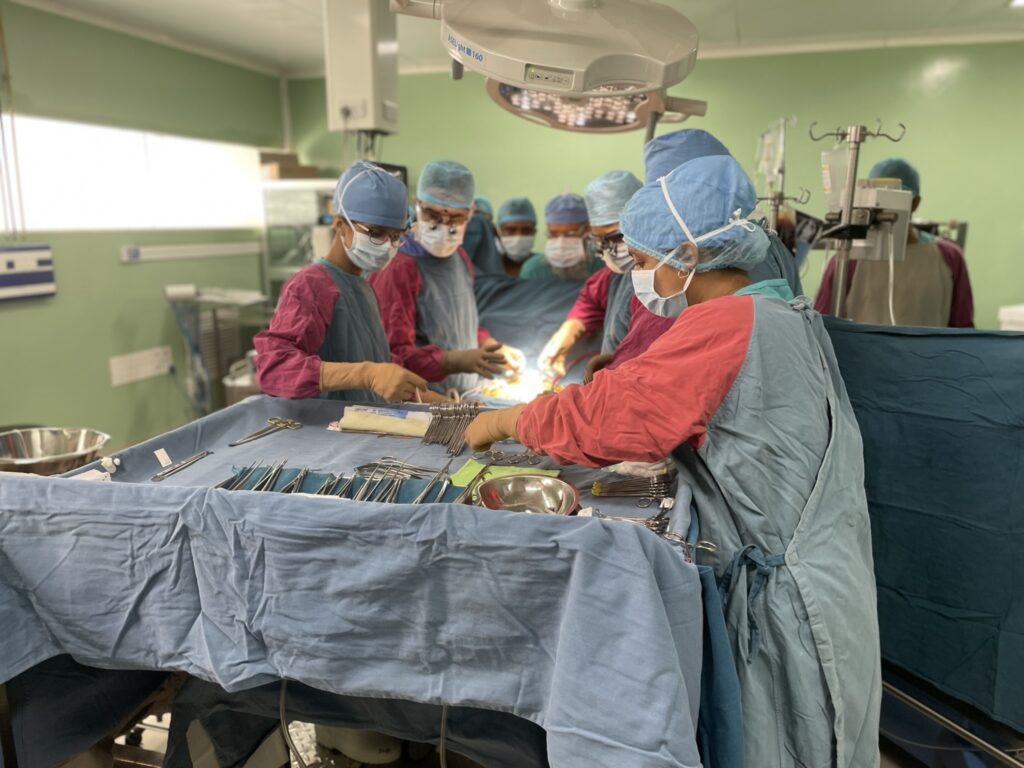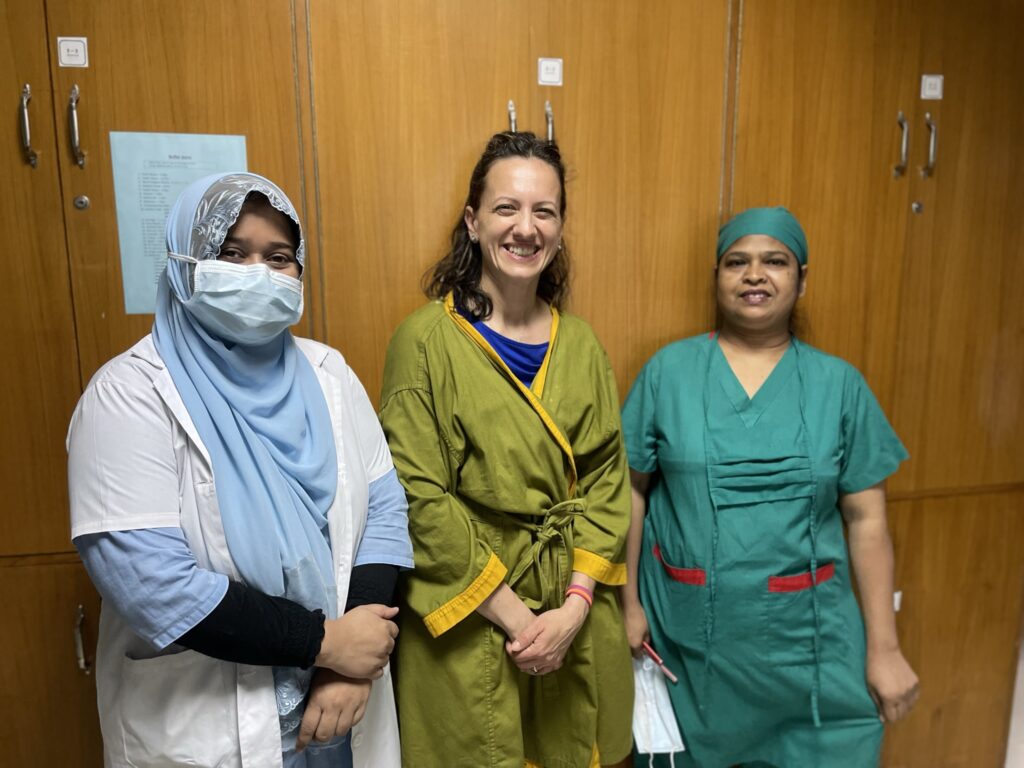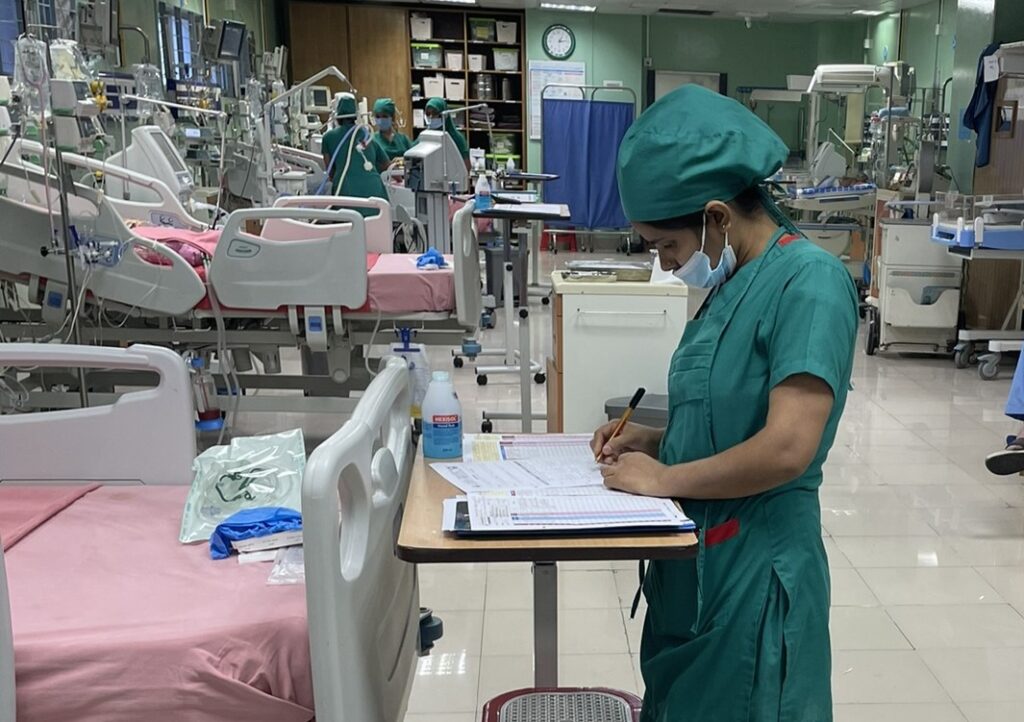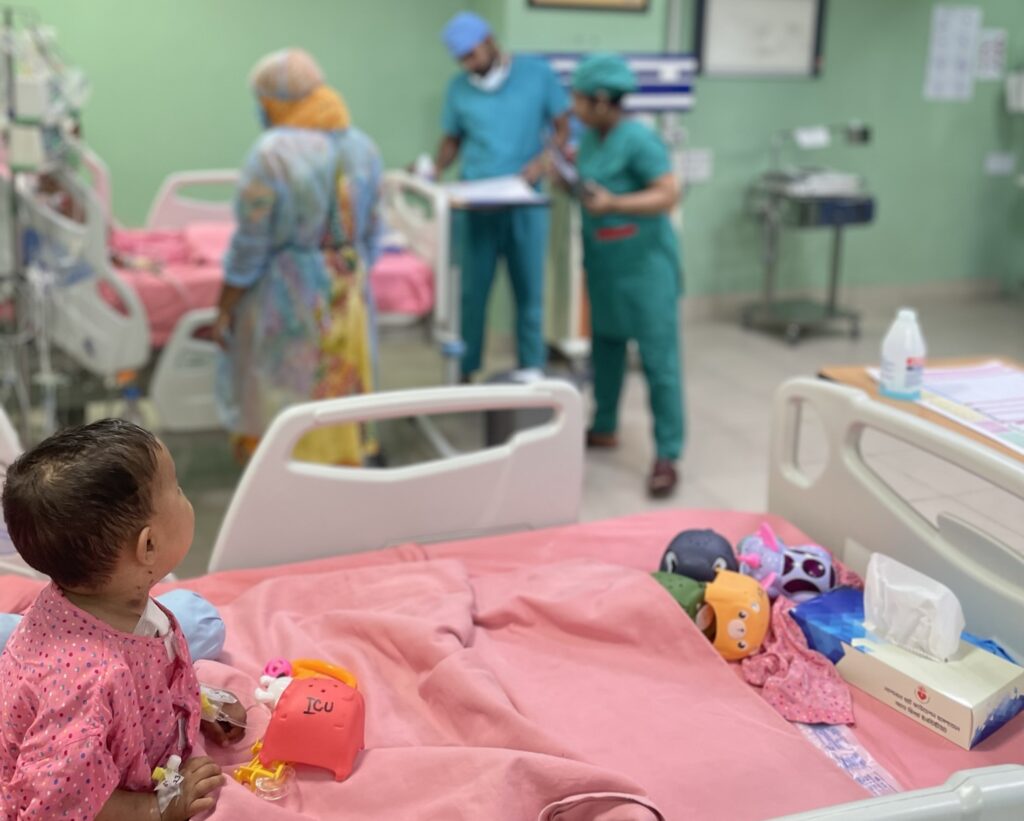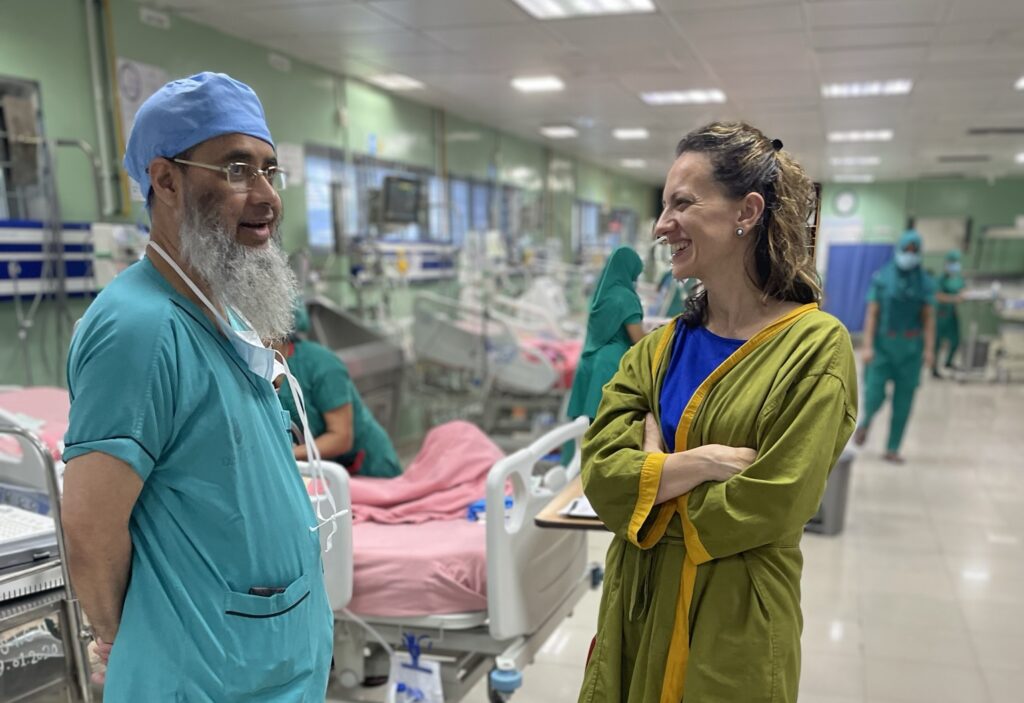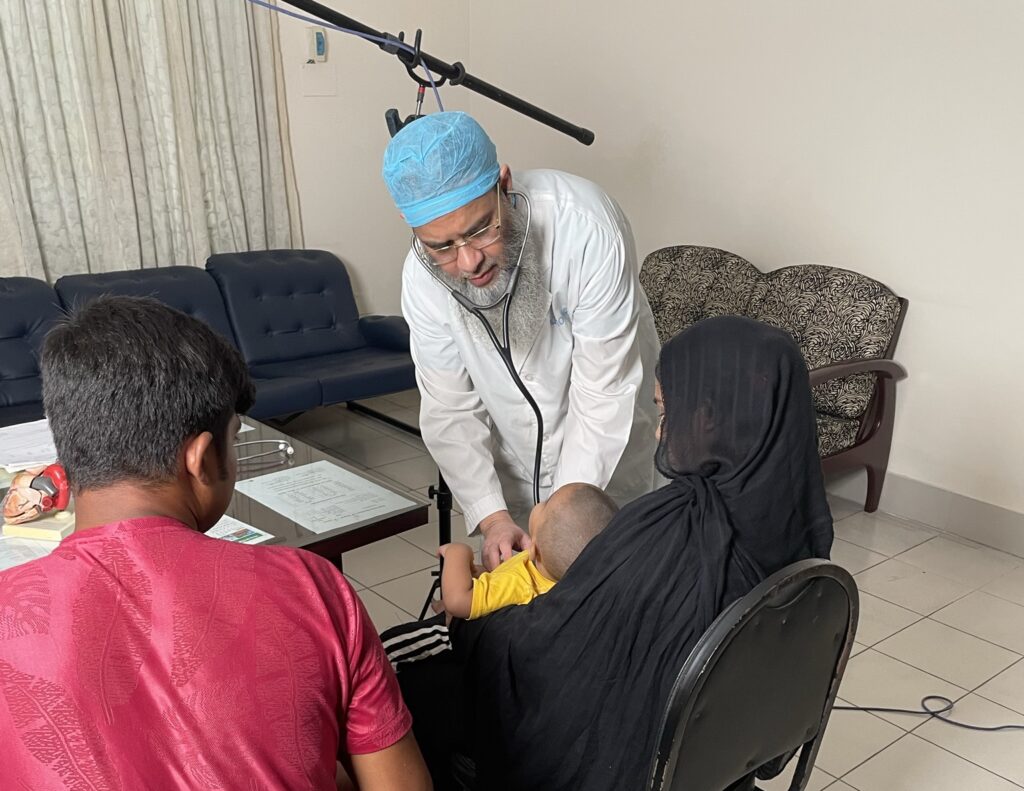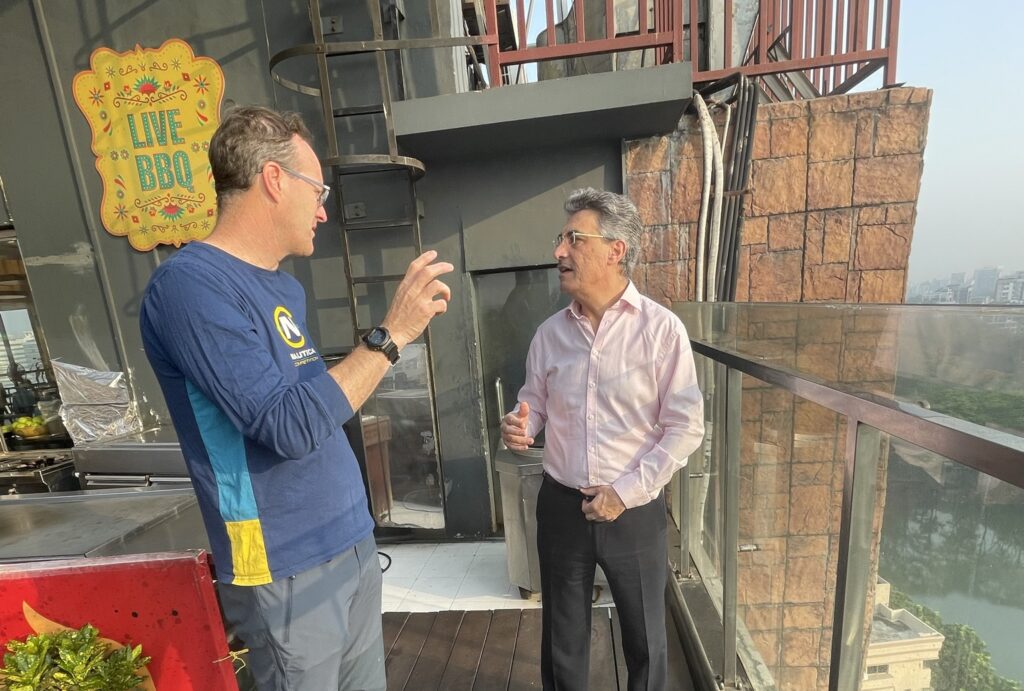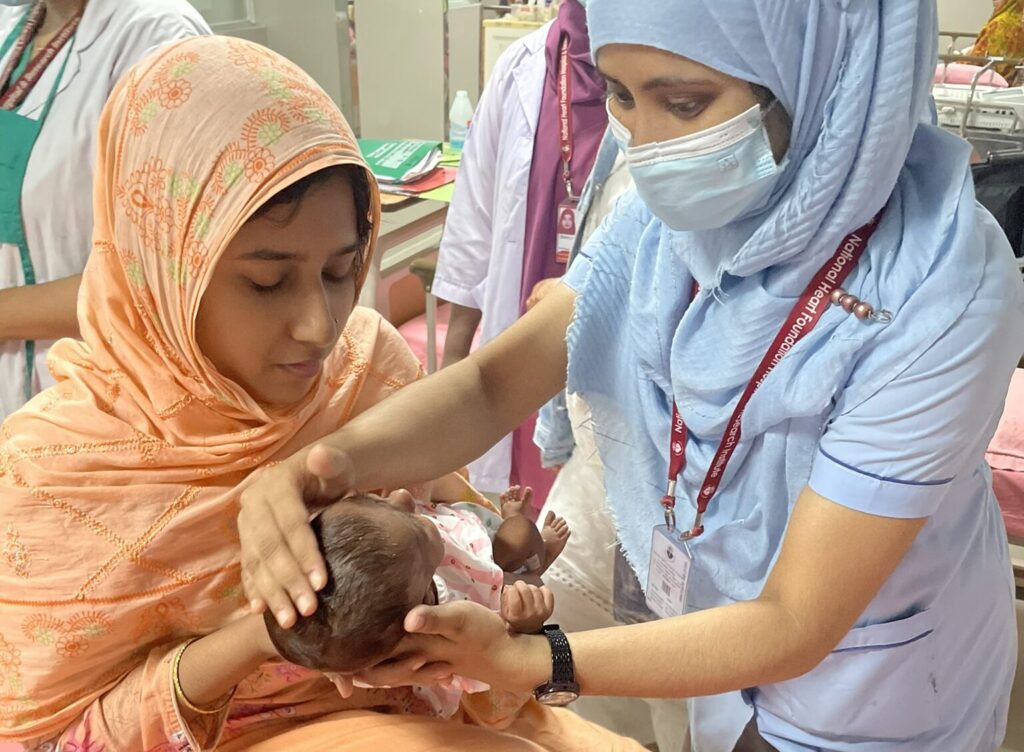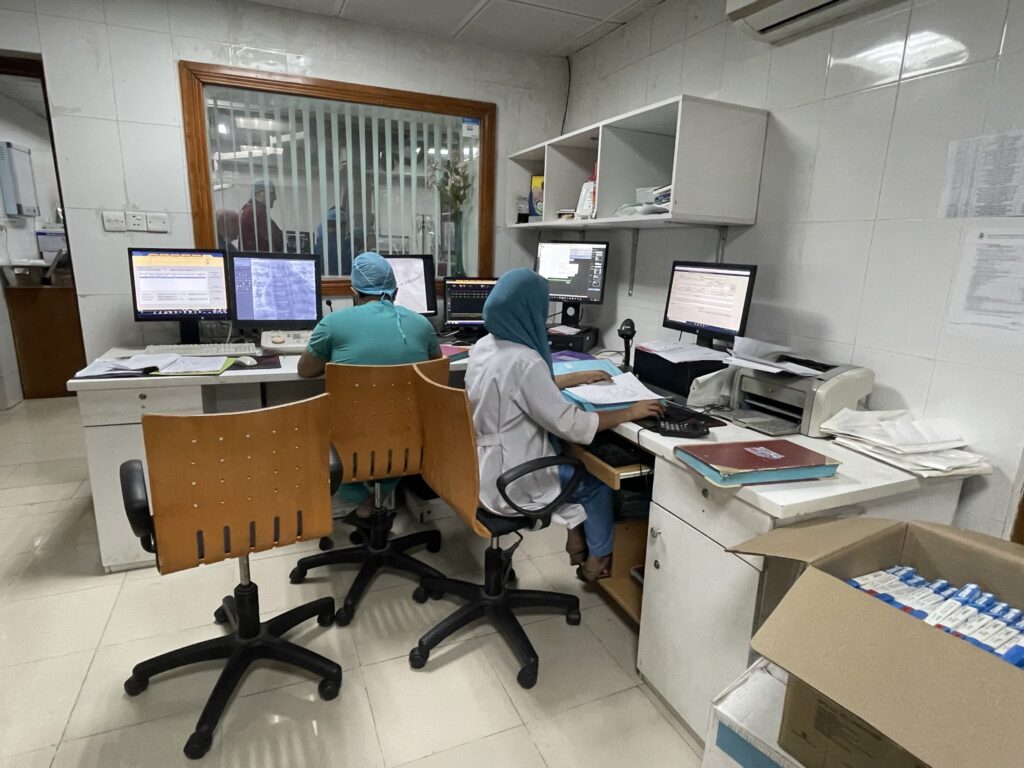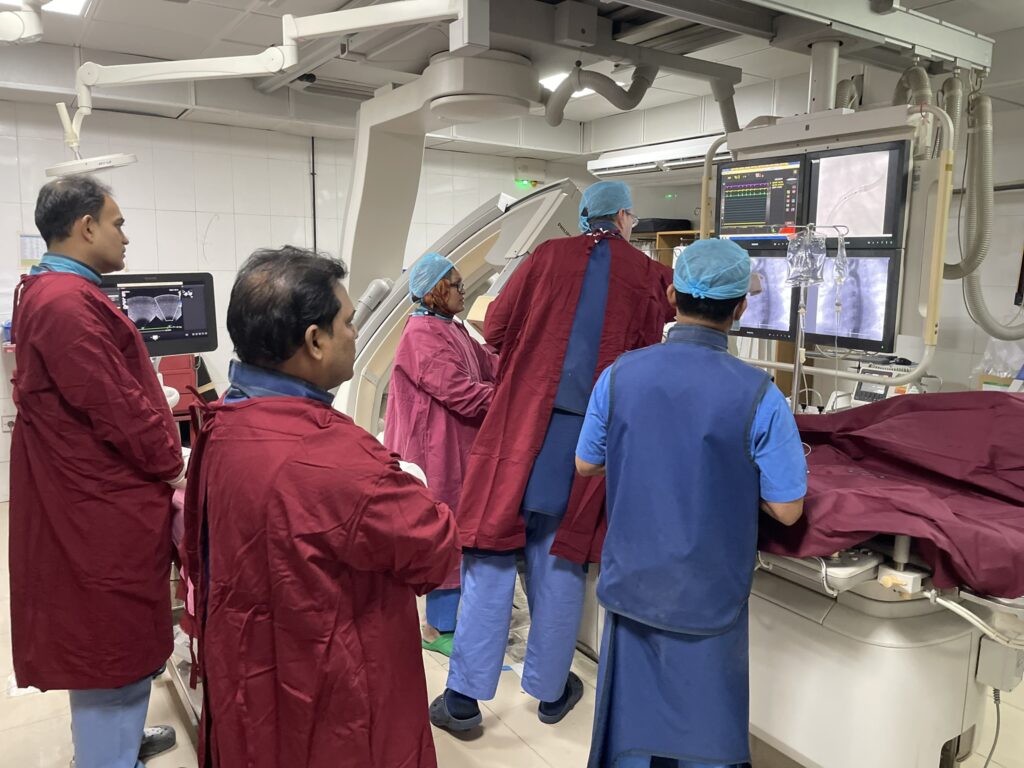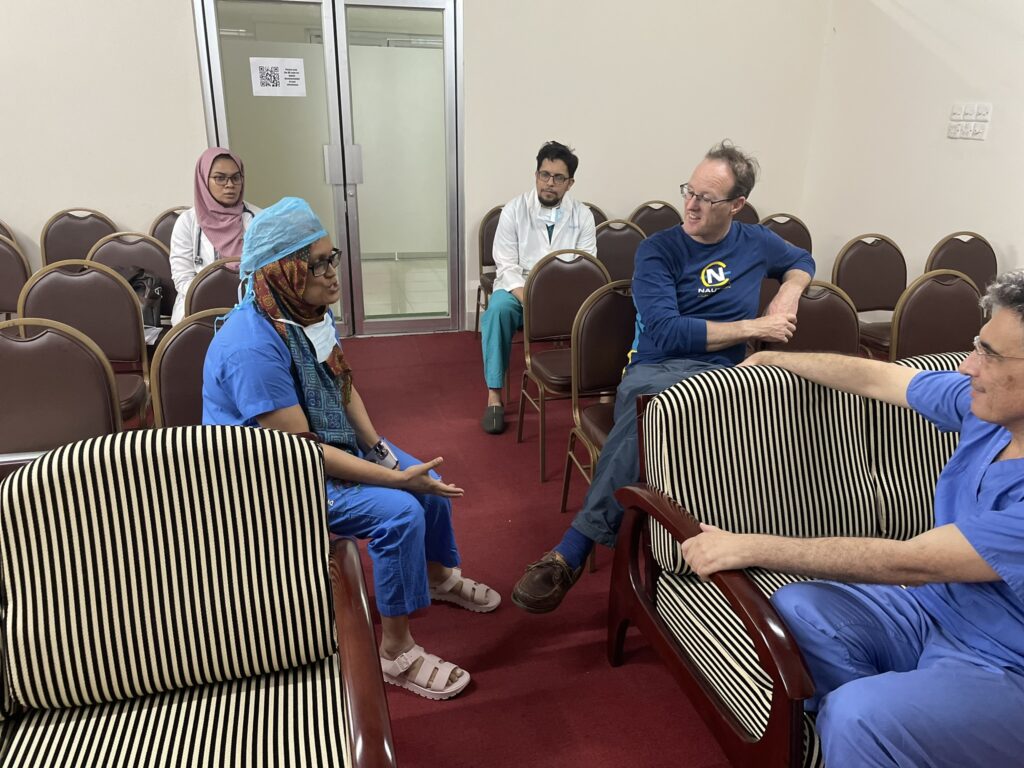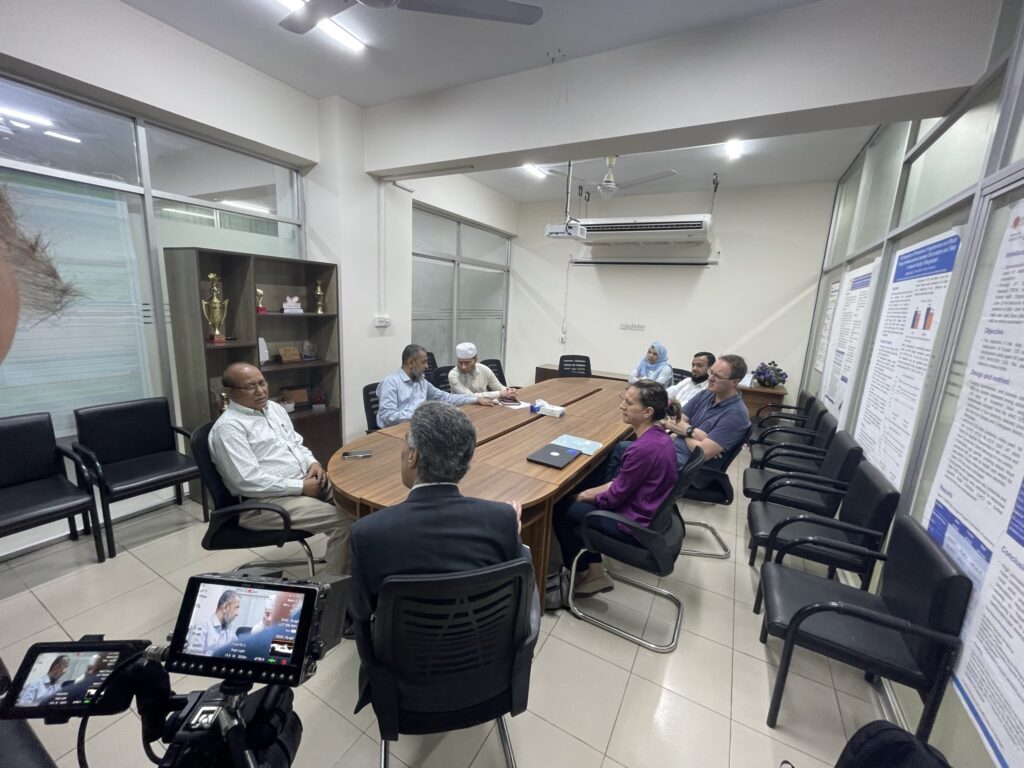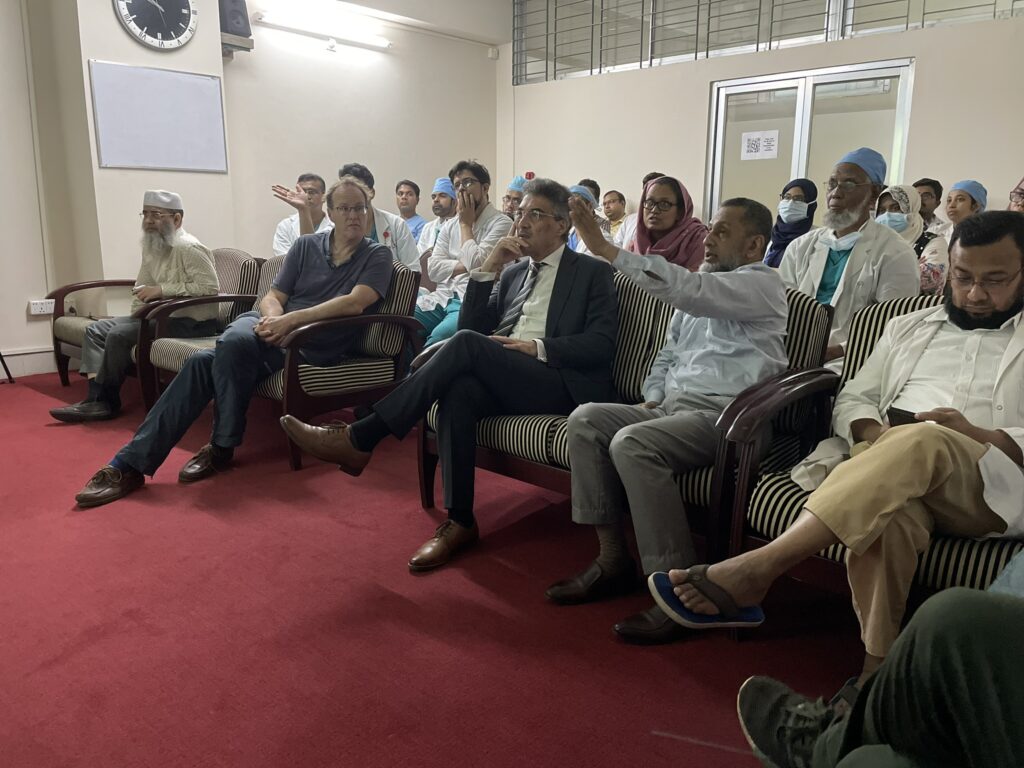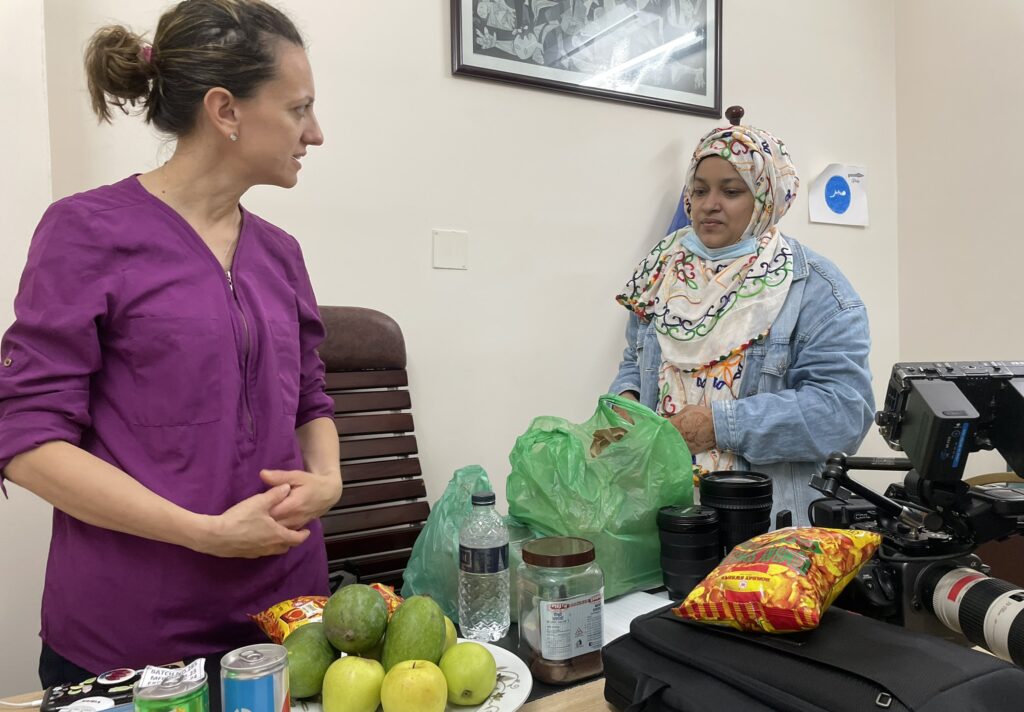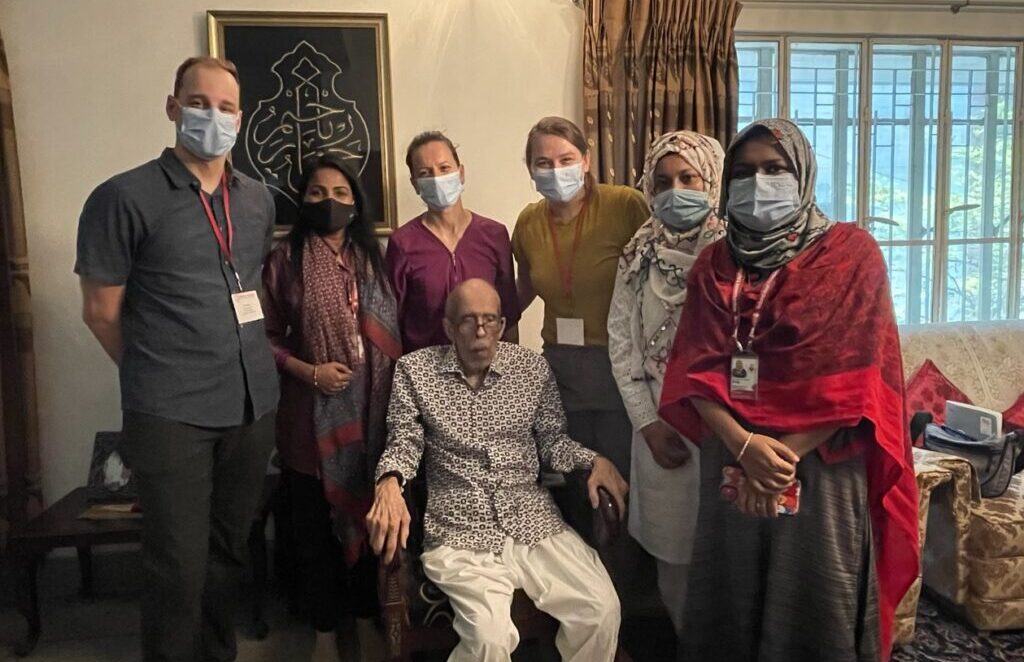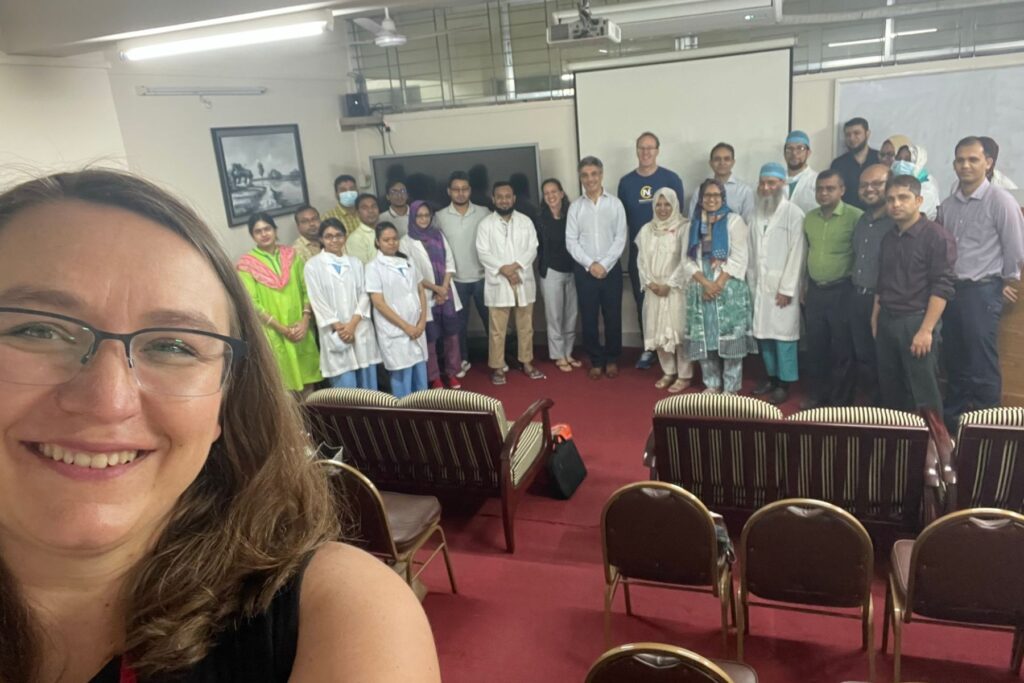August 1, 2023
21 Pictures to Bring You Inside a Children’s Heart Care Training at National Heart Foundation in Bangladesh
National Heart Foundation Hospital and Research Institute (NHF) welcomed Children’s HeartLink medical volunteers to Dhaka, Bangladesh in May 2023. This training visit included a pediatric cardiologist and pediatric heart surgeon from Leeds Children’s Hospital in the U.K. During the four-day training visit, the teams had fruitful discussions on complex cases that the NHF team was handling and mentorship was offered in the Operating Room and Catheterization Lab.
NHF is partnering with Children’s HeartLink to establish itself as a regional training center that can educate more healthcare professionals in the country on how to provide care for children with congenital heart disease (CHD). According to estimates, Bangladesh witnesses the birth of around 49,000 infants every year who have congenital heart disease, and roughly 25% of them will require surgical intervention.
Scroll through these pictures provided by Sam Flynn, our director of marketing and communications, for an inside look at a Children’s HeartLink partnership training visit in Bangladesh.
Children’s HeartLink partnerships are designed to support local hospital teams in improving their pediatric cardiac teams and the care they provide for children with congenital heart disease. We lead multi-year training partnerships between medical teams from top teaching and research institutions and teams in Bangladesh, Brazil, China, India, Malaysia and Vietnam. Together, the teams build a program that aims to deliver high-quality, team-based care for children.
In December 2022, Children’s HeartLink announced their partnership with National Heart Foundation Hospital and Research Institute (NHF) and their medical volunteer team from Leed’s Children’s Hospital. NHF became Children’s HeartLink’s 20th partner hospital, and first in Bangladesh.
In person and virtual trainings are vitally important for Children’s HeartLink partnerships to be successful. This training visit was funded by the generosity of Omar Ishrak and his family. All of our work is 100% funded by you, foundations and organizations. It takes a community of supporters to make our work at Children’s HeartLink’s possible. Consider making a donation here to fund more trips to help us serve even more children with CHD.
About Children’s HeartLink
Children’s HeartLink saves children’s lives by transforming pediatric heart care in underserved parts of the world. The global nonprofit organization (NGO), partners medical volunteers from top teaching and research institutions with doctors, nurses and health care professionals in Bangladesh, Brazil, China, India, Malaysia and Vietnam to develop or improve pediatric cardiac care programs. Since 1969, the organization has reached more than 1.5 million children.
About National Heart Foundation of Bangladesh
National Heart Foundation of Bangladesh, a non-profit, was founded in 1978 by National Professor Brig. (Rtd.) Abdul Malik with the goals of cardiovascular health promotion, education, research and provision of clinical care. National Heart Foundation Hospital and Research Institute is the prime project of the foundation with 480 beds.
About Leeds Children’s Hospital
Leeds Children’s Hospital is one of the UK’s largest specialist children’s hospitals offering a wide range of treatment and care for children from birth to young adulthood and beyond. The Congenital Heart Unit at Leeds Children’s Hospital identifies, diagnoses and treats congenital heart disease, arrhythmias and acquired heart disease. The Congenital Heart Unit is supported by Children’s Heart Surgery Fund.
